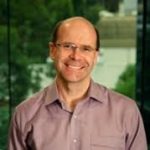David Yarrow highlighted Australia’s failure to live up to international declarations in discussing Indigenous Consent during an excellent annual Castan Centre conference, Rhys Michie reports.
Castan provokes and stimulates
By Rhys Michie*
Foreign aid, human rights in North Korea, free speech and internet surveillance were among the hot topics addressed at the annual conference of the Monash University Castan Centre for Human Rights Law recently.
Held at Federation Square in Melbourne on 24 July, the conference brought together advocates, lawyers, academics and communicators to discuss contemporary issues in human rights law, listen to inspirational presentations, network with like-minded colleagues and develop strategies.
Speakers addressed the range of issues mentioned, as well as human rights and the constitution, poverty and inequality, border protection, indigenous consent and reproductive rights. The diversity of issues was matched by a range of voices speaking from local, national and international perspectives.
I found the Q&A interaction challenged the main narrative and enhanced the engagement between speakers and the audience. The event is a motivational goldmine that has resonated with me.
This year was significantly marked by the announcement mid-conference that the Australian Government was to bring to shore 157 asylum seekers being held incommunicado aboard a Customs ship.
 Professor George Williams (pictured, who is a CLA member) discussed the High Court, the Constitution and human rights. It was interesting to hear the difficulty of comparing the Australian situation with other nations in the Anglo-sphere, and that the High Court judgments are made without reference to human rights or human rights law. He expressed the view that the Constitution has been drafted to enable human rights breaches and that civil and political rights are weak.
Professor George Williams (pictured, who is a CLA member) discussed the High Court, the Constitution and human rights. It was interesting to hear the difficulty of comparing the Australian situation with other nations in the Anglo-sphere, and that the High Court judgments are made without reference to human rights or human rights law. He expressed the view that the Constitution has been drafted to enable human rights breaches and that civil and political rights are weak.
Hearing Professor Williams changed my perspective, and I found his strategy tips inspirational. I learned from him that the most effective method of enabling the High Court to discover human rights were to:
- argue the coincidence of X human right with the pre-existing right Y,
- argue for an interest that aligns with a High Court interest,
- argue for implications in the Constitution, or
- utilise the external affairs power to open an opportunity for legislative protection of human rights.
David Yarrow gave an excellent speech on the Australian Way of Indigenous Consent. Yarrow’s speech was highly informed, soundly constructed and stood out. Even though he gave his secrets away right at the beginning, he held my attention right through (just in case there was more, and there was!) Yarrow discussed Australia’s failure to live up to the spirit of the UN Declaration on the Rights of Indigenous Peoples. The lack of genuine consent, the differing standards that apply to Aboriginal and traditional Aboriginal people, between jurisdictions and between Acts were problems identified.
Yarrow cited examples including Muckaty station, bilingual education, weak standards for indigenous input, criminal justice and a lack of uniform standards which highlighted the gap between the Declaration and the lived experience of Indigenous people in contemporary Australia. Yarrow’s discussion of the indigenous social imagery resonated in my mind, and was certainly the conference highlight for me.
Networking with other human rights people has been a fantastic opportunity to broaden my perspective and change the way I think about my work with CLA. I enjoy interacting with people at different stages in their careers, and learning from their experiences and ambitions.
By challenging the norms in the discourse, we strengthen the human rights community. In aggregate, our work will improve. I for one am more motivated.
Rhys Michie is CLA’s ‘go to’ man in Victoria, and state media spokesperson in training. He is leading a national project to provide strong, meaningful input to the Freedom Inquiry, the year-long exploration sparked by Attorney-General George Brandis, which is being run by the Australian Law Reform Commission. Members of CLA who would like to work with Rhys on the project may care to contact the Secretary on mailto:secretary@cla.asn.au

